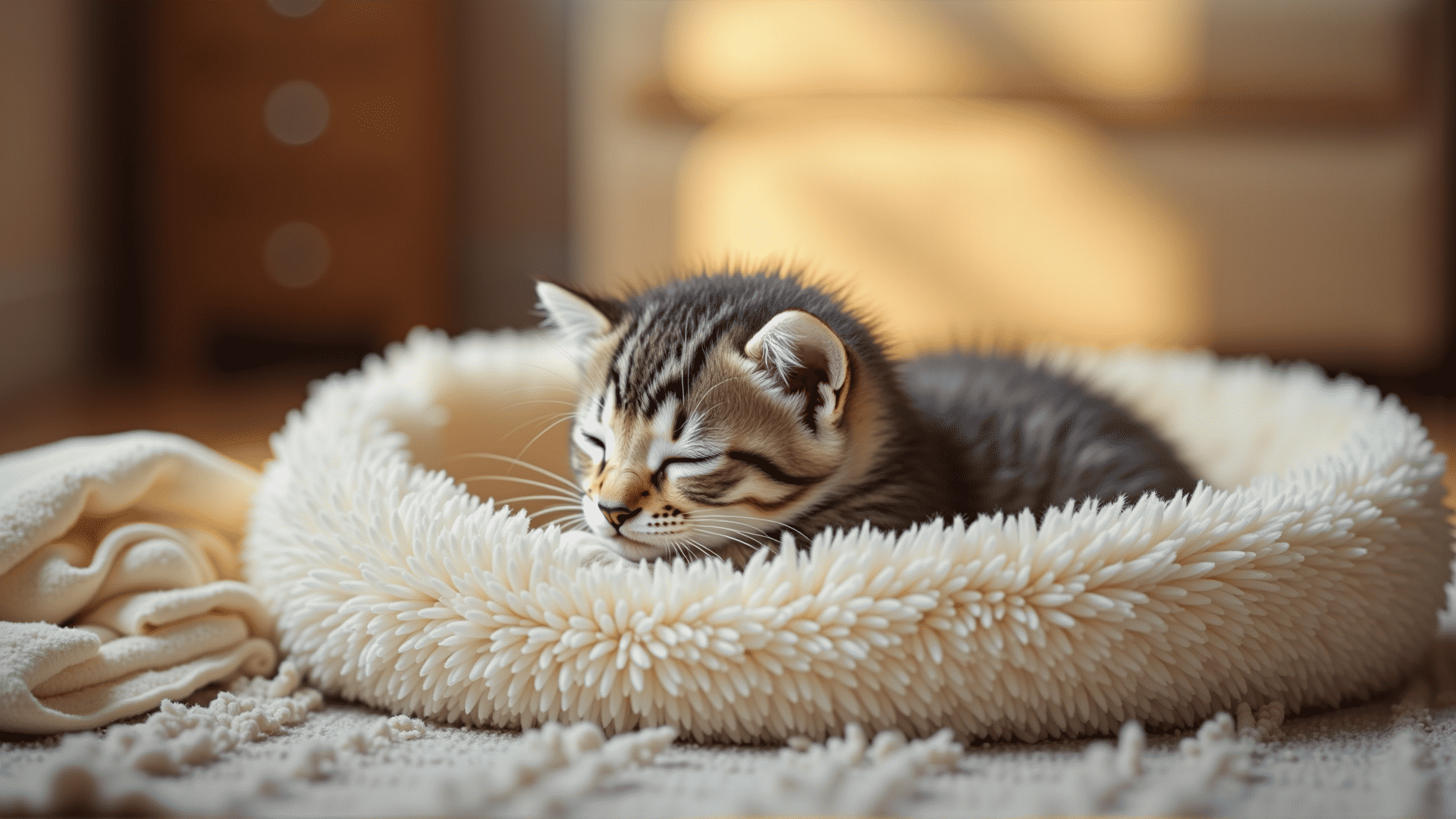Kittens, much like human babies, have unique sleep patterns that aid in their growth and development. Understanding these patterns is essential for providing the best care.
Typical Sleep Patterns
Newborn kittens can sleep up to 22 hours a day. This sleep is crucial for their development, especially the maturation of their central nervous system, brain, and muscles. As they grow, their sleep requirements gradually decrease, and by the time they reach three months, their sleep often aligns more with adult cats, averaging around 16 hours a day.
Kittens experience different stages of sleep, with REM (Rapid Eye Movement) sleep being particularly significant. During this phase, they may twitch their whiskers, paws, or tail, which is entirely normal. This stage is vital for brain development and learning, making it essential for their overall growth and adaptation to the environment.
Creating an Optimal Sleeping Environment
To ensure your kitten gets the rest it needs, consider the following tips for creating an optimal sleeping environment:
-
Comfortable Bedding: Provide a soft and warm sleeping area. Kittens often appreciate enclosed spaces like a cozy box or a small pet bed where they can feel secure.
-
Consistent Routine: Just as with children, maintaining a consistent daily routine can help regulate a kitten's sleep. Feed them, play with them, and let them settle down at similar times each day.
-
Quiet and Calm: Ensure that the sleeping area is quiet, away from the hustle and bustle of the household. Kittens can be easily disturbed by loud noises, which could interrupt their rest.
-
Warmth: Kittens crave warmth, especially if they don't have their mother or siblings close by. You can use a warm blanket or a pet-safe heating pad to provide a comfortable sleeping temperature.
-
Safe Space: Make sure their sleeping location is safe and free from hazards. Kittens are curious creatures and might venture into risky areas, so check for potential dangers like cords or sharp objects nearby.
Monitoring Sleep Patterns
Keep an eye on your kitten’s sleep habits as they can be indicators of their health. If a kitten becomes unusually lethargic or, conversely, restless and unable to sleep, it might be worthwhile to consult a veterinarian. Changes in their sleep patterns can sometimes point to underlying health issues or stress.
Encouraging Play and Activity
While rest is vital, appropriate play and activity level during their awake periods are equally important. Interactive toys, laser pointers, or simple string games can help kittens expend energy, making it easier for them to settle down and enjoy restorative sleep.
Conclusion
Understanding and supporting your kitten’s sleep patterns contributes significantly to their health and happiness. By creating a nurturing environment and being attentive to their needs, you ensure they grow into healthy, well-adjusted cats. In return, those restful moments will help foster a stronger bond with your feline friend.
